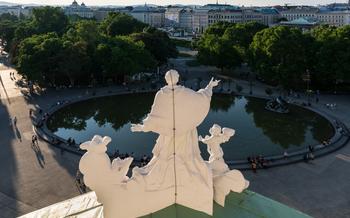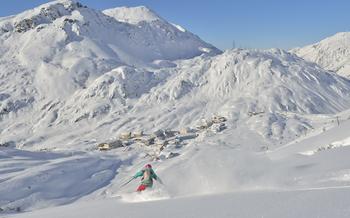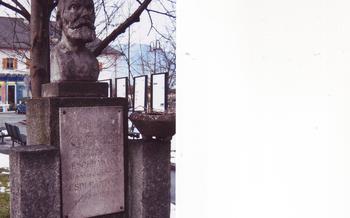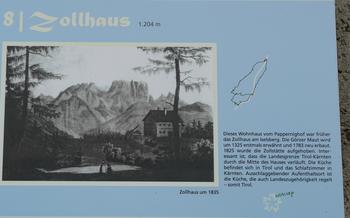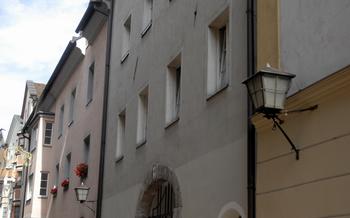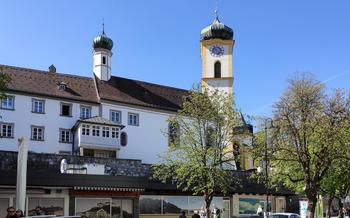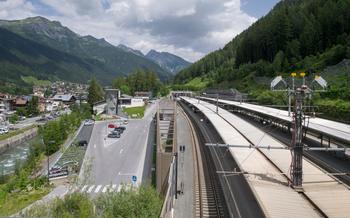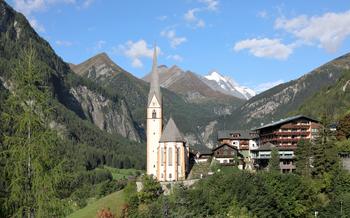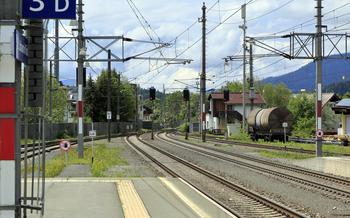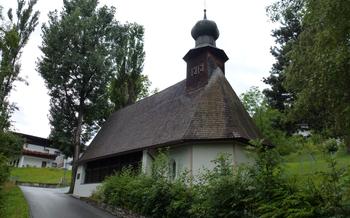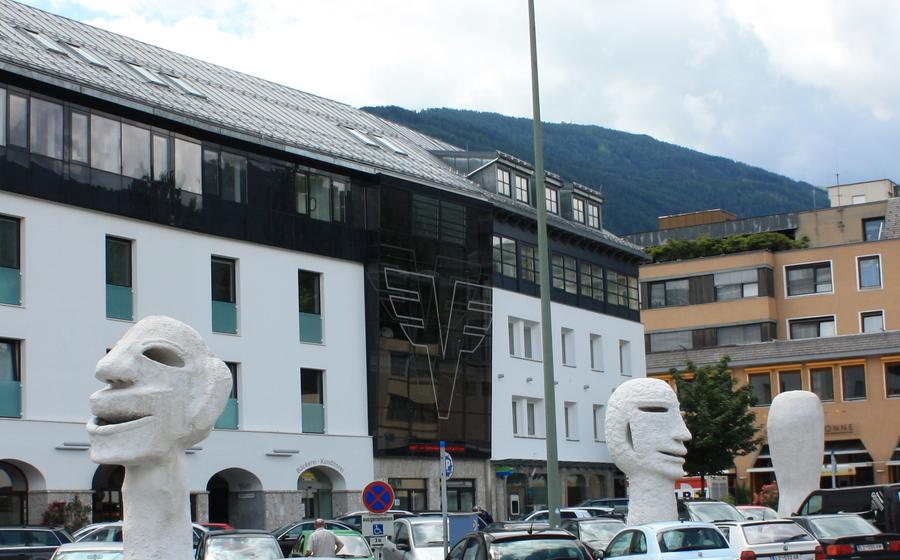
The Local History Museum in Obertilliach
- The Local History Museum in Obertilliach
- History of Obertilliach
- The Building of the Museum
- The Museum's Collections
- Temporary Exhibitions
- Educational Programs
- Events and Activities
- Accessibility
- Admission and Hours
- Getting There
- Nearby Attractions
- Accommodation
The Local History Museum in Obertilliach
The Local History Museum in Obertilliach, Austria, is a treasure trove of information about the town's rich history and culture. Founded in 1962, the museum is located in a historic building in the heart of the village, the Obertilliacher Heimatmuseum. It showcases a diverse collection of artifacts, documents, and displays that tell the story of Obertilliach from its humble beginnings to the present day.
Highlights of the museum include a section dedicated to the town's mining history, which played an important role in the development of Obertilliach. Visitors can learn about the different mining techniques used over the centuries and see examples of the minerals that were extracted from the mines. There is also a section on the town's traditional way of life, which includes exhibits on farming, forestry, and crafts. Visitors can see examples of the tools and equipment that were used in these industries, and learn about the challenges that the people of Obertilliach faced in making a living.
History of Obertilliach
Obertilliach's exact founding date is unknown, but it is believed to have been settled in the early 13th century by farmers from the Pustertal Valley. The first written mention of Obertilliach dates back to 129In the Middle Ages, Obertilliach was an important trading center on the trade route between Venice and Germany. The town was also a center of mining, and silver, copper, and lead were mined in the surrounding mountains.
In the 16th and 17th centuries, Obertilliach was a major center of the Protestant Reformation. The town was home to several Protestant churches, and many of the town's residents converted to Protestantism. However, after the Counter-Reformation, the Protestants were forced to leave Obertilliach, and the town became once again a predominantly Catholic town.
In the 19th century, Obertilliach was a poor and isolated town. The town's economy was based on agriculture, and there was little industry. However, in the late 19th century, Obertilliach began to develop as a tourist destination. The town's beautiful scenery, its historic buildings, and its proximity to the Dolomites attracted visitors from all over Europe.
In the 20th century, Obertilliach continued to grow as a tourist destination. The town's economy became increasingly dependent on tourism, and Obertilliach became one of the most popular tourist destinations in Austria. Today, Obertilliach is a thriving town with a population of over 1,000 people. The town is home to several hotels, restaurants, and shops, and it offers a variety of activities for visitors, including hiking, biking, skiing, and snowboarding.
The Building of the Museum
The building that houses the Local History Museum in Obertilliach is a historic landmark in its own right. Constructed in the 16th century, it was originally used as a granary to store the grain that was produced by the local farmers. The building is a typical example of Tyrolean architecture, with its whitewashed walls, wooden beams, and steeply pitched roof.
In the 19th century, the building was converted into a schoolhouse. It served this purpose until the 1960s, when it was finally closed due to declining enrollment. In the 1970s, the building was renovated and converted into a museum.
The museum building is a unique example of how historic buildings can be adapted and reused for new purposes. It is a testament to the town's commitment to preserving its history and culture.
The building's architectural features are also noteworthy. The most striking feature is the steeply pitched roof, which is covered with wooden shingles. The walls are whitewashed and decorated with colorful frescoes. The building has two floors, with the museum's exhibits housed on the upper floor.
The building has been preserved over time through a combination of regular maintenance and careful restoration. The most recent restoration project was completed in 2010, and it involved the replacement of the roof shingles and the repair of the frescoes.
The Museum's Collections
The Local History Museum in Obertilliach boasts a comprehensive collection of artifacts that narrate the rich history of the town and its surroundings. These artifacts, meticulously gathered and preserved, provide a tangible connection to the past, shedding light on the cultural heritage and traditions of Obertilliach.
The museum's collection encompasses a diverse range of items, including traditional tools, clothing, furniture, and religious objects. These artifacts offer a glimpse into the daily lives of the people who lived in Obertilliach centuries ago. Visitors can marvel at intricate wood carvings, handcrafted textiles, and intricately designed pottery, each piece a testament to the skill and artistry of the local artisans.
Among the highlights of the collection is a rare collection of antique farming implements, providing insights into the agricultural practices that shaped the town's economy. The museum also houses a collection of historical documents, including maps, letters, and diaries, which chronicle the town's development over the centuries. These documents offer a unique perspective on the challenges and triumphs that the people of Obertilliach have faced throughout history.
The artifacts in the Local History Museum in Obertilliach are arranged in thematic displays, allowing visitors to trace the town's evolution from its humble beginnings to its present-day status as a vibrant and welcoming community. Through these carefully curated exhibits, visitors can gain a deeper understanding of the people and events that have shaped Obertilliach's unique identity.
Temporary Exhibitions
The Local History Museum in Obertilliach regularly hosts temporary exhibitions that showcase a variety of topics related to the history, culture, and people of the region. These exhibitions are designed to complement the museum's permanent collection and offer visitors a fresh perspective on the area's past.
The museum's temporary exhibitions are typically held for several months at a time and are curated by experts in the field. They feature a variety of artifacts, including photographs, documents, paintings, and sculptures, as well as interactive displays and multimedia presentations.
The topics of the temporary exhibitions vary widely and have included everything from the history of skiing in Obertilliach to the traditional costumes of the region. The museum also hosts special exhibitions that coincide with major events or anniversaries, such as the 500th anniversary of the town's founding.
The temporary exhibitions at the Local History Museum in Obertilliach are a great way to learn more about the region's history and culture. They are also a great way to see new and interesting artifacts and to get involved in interactive and educational activities.
Educational Programs
The Local History Museum in Obertilliach offers a variety of educational programs designed to engage and educate visitors of all ages. These programs are designed to provide a deeper understanding of the history and culture of Obertilliach and the surrounding region. Programs are available for school groups, families, and individuals, and can be tailored to specific interests and needs.
One of the most popular programs is the "History of Obertilliach" tour, which takes visitors on a journey through the town's rich past. The tour includes visits to the museum's exhibits, as well as to historical sites around the town. Another popular program is the "Hands-on History" workshop, which allows visitors to experience firsthand what life was like in Obertilliach in the past. Participants can try on traditional clothing, learn how to cook traditional dishes, and play traditional games.
The museum also offers a variety of educational resources for teachers and students, including lesson plans, worksheets, and online activities. These resources can be used to supplement classroom learning and to bring the history of Obertilliach to life for students.
To learn more about the museum's educational programs, visitors can contact the museum directly or visit the museum's website. The museum staff is always happy to answer questions and help visitors plan their visit.
Events and Activities
The Local History Museum in Obertilliach hosts a variety of events and activities throughout the year. These events and activities are designed to engage visitors of all ages and interests and to provide them with a deeper understanding of the history and culture of Obertilliach.
Some of the most popular events and activities include:
- Guided tours of the museum's exhibits, led by knowledgeable docents who can provide insights into the artifacts and the stories behind them.
- Temporary exhibitions on a variety of topics related to Obertilliach's history and culture, such as traditional crafts, local cuisine, and the history of the town's Jewish community.
- Educational programs for school groups and other organizations, which can be customized to meet the specific needs of the group.
- Workshops and demonstrations on traditional crafts, such as woodworking, pottery, and weaving.
- Concerts, lectures, and other cultural events, which are often held in the museum's auditorium or courtyard.
The museum's events and activities are promoted through a variety of channels, including the museum's website, social media, and local newspapers and magazines.
Accessibility
The Local History Museum in Obertilliach is committed to providing access to all visitors, regardless of their abilities. The museum has a number of accessibility features, including a wheelchair-accessible entrance, an elevator, and accessible restrooms. The museum also offers a variety of programs and services for visitors with disabilities, including ASL tours, audio description, and touch tours. Staff members are also trained to assist visitors with disabilities.
Despite the museum's efforts to provide access, there are still some challenges that visitors with disabilities may face. For example, the museum is located on a hill, and the path to the entrance is steep. Additionally, some of the exhibits are not accessible to visitors in wheelchairs. However, the museum is working to address these challenges, and they are always looking for ways to improve accessibility.
If you have any questions about accessibility at the Local History Museum in Obertilliach, please do not hesitate to contact the museum staff. They will be happy to assist you in planning your visit.
Admission and Hours
The admission fee to the Local History Museum in Obertilliach is €5 for adults, €3 for seniors and students, and free for children under The museum is open from Tuesday to Sunday, from 10am to 5pm**.
Discounts are available for groups of 10 or more people. Visitors can also purchase a combined ticket that gives them admission to the museum and other attractions in Obertilliach.
The best time to visit the museum is during the shoulder seasons (May-June and September-October), when the weather is mild and there are fewer crowds. During the summer months, the museum can be very crowded, especially on weekends.
Tips for visiting the museum:
- Arrive early to avoid the crowds.
- Take your time and allow at least two hours to explore the museum's exhibits.
- Be sure to visit the museum's gift shop, which sells a variety of souvenirs and books about Obertilliach.
- Take advantage of the museum's educational programs, which are offered throughout the year.
- Don't forget to visit the museum's website for more information about exhibits, events, and programs.
Getting There
The Local History Museum in Obertilliach is located at Kirchplatz 1, 9942 Obertilliach, Austria. It is situated in the heart of the town, next to the parish church. Visitors can easily reach the museum on foot from anywhere in Obertilliach. For those arriving by car, there is limited parking available on the streets near the museum. The museum is also accessible by public transportation. The nearest bus stop is Obertilliach Dorf, which is a short walk from the museum.
To get to Obertilliach, visitors can take a train to Lienz and then a bus to Obertilliach. Alternatively, visitors can drive to Obertilliach from Lienz or Innsbruck. The drive from Lienz takes about 45 minutes, while the drive from Innsbruck takes about 2 hours.
Nearby Attractions
The Local History Museum in Obertilliach is surrounded by a wealth of other cultural and historical attractions. Just a short walk away, visitors can explore the Obertilliach Parish Church, a 13th-century Gothic masterpiece with stunning frescoes and intricate stained glass windows. The church is home to a treasury of religious artifacts, including a rare 16th-century monstrance.
Another must-see attraction is the Obertilliach Castle, a 13th-century fortress that once guarded the entrance to the Pustertal Valley. The castle has been beautifully restored and now houses a museum dedicated to the history of the region. Visitors can learn about the castle's role in defending the valley against invaders and explore its many rooms and towers.
For those interested in the natural beauty of the region, the Obertilliach Nature Park is a must-visit. The park is home to a variety of flora and fauna, including alpine meadows, forests, and mountain peaks. Visitors can hike, bike, or simply relax and enjoy the stunning scenery.
These are just a few of the many attractions that await visitors to Obertilliach. With its rich history, cultural heritage, and natural beauty, Obertilliach is the perfect destination for a memorable vacation.
Accommodation
The museum is situated in the picturesque town of Obertilliach, offering a range of accommodation options for visitors. Whether you seek a cozy bed and breakfast, a traditional guesthouse, or a modern hotel, you'll find something to suit your needs. Prices vary depending on the type of accommodation and amenities offered. Research online or seek guidance from the museum staff to find the best deals.
For a budget-friendly stay, consider guesthouses like Pension Alpenrose or Gasthof Sonne, offering comfortable rooms at affordable rates. For a more upscale experience, Hotel Gasthof Post, located in the heart of the town, provides elegant accommodations with stunning mountain views.
If you're traveling in a group or family, consider renting an apartment or chalet. AlpenParks Hotel & Apartment Hochpustertal, just a short walk from the museum, offers spacious and well-equipped apartments with kitchen facilities.
To fully immerse yourself in the local culture, opt for a traditional farmhouse stay. Several nearby farms offer bed and breakfast accommodations, allowing you to experience the authentic Tyrolean lifestyle.
Remember to book your accommodation in advance, especially during peak tourist seasons, to secure the best rates and availability.
